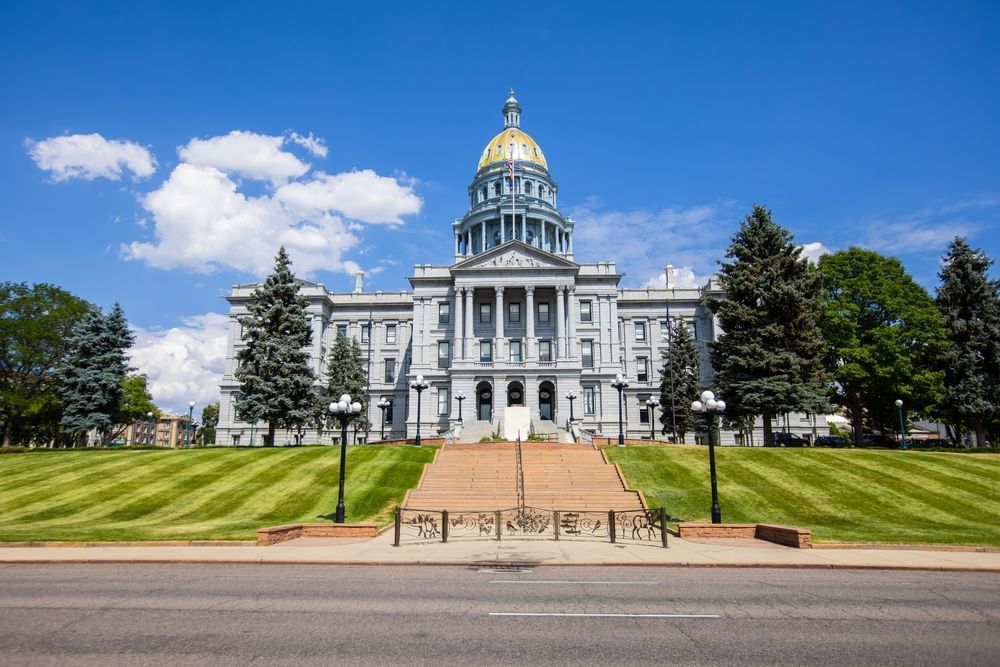Resolving family legal issues can be stressful and complicated. Emotions run high, and it can be difficult to see the matter clearly. You need objective legal counsel from an experienced family attorney. Call the Law Office of John Williams in Charlotte, NC. John Williams can assist you if you're filing for divorce. He also handles child custody and guardianship cases.
Arrange for a consultation with a divorce attorney in Charlotte, NC today.
State Issues
“Indivisible's” Misguided Crusade

“Indivisible's” Misguided Crusade: How a Local Activist Group Betrays America's Founding Principles as a Constitutional Republic
In the quiet town of Montrose, Colorado, a group called Montrose & Ouray Counties Indivisible (MOC Indivisible) has emerged as a vocal force in local politics. Billing themselves as champions of "inclusive democracy," they organize protests, rallies, and advocacy campaigns against what they perceive as right-wing threats, from union-busting to authoritarianism. Led by figures like Holly Speaks, a psychotherapist and disabled advocate, and supported by contacts such as Heather Christin Toth, the group aligns with the national Indivisible movement, which arose in 2016 to resist Donald Trump's presidency. Other notable members include none other than Colorado’s Governor Jerod Polis himself. Their activities, ranging from May Day protests decrying billionaire influence, to events opposing federal policies like the "Big Beautiful Bill," sound noble on the surface. Their resistance to Donald Trump, whom they paint as a right-wing extremist, is particularly ironic given that Trump is not even right-wing ideologically; rather, he is a centrist, in fact, probably the most pragmatic centrist President that we have seen in this country in the last 100 years. But a closer examination reveals a profound disconnect: Indivisible's relentless push for "democracy" ignores the fact that the United States was deliberately founded not as a democracy, but as a Constitutional Republic. This misunderstanding isn't just academic; it underscores how far-left organizations like “Indivisible” undermine the very Constitution they claim to defend, favoring fluid interpretations rooted in socialist ideals that history has repeatedly shown to fail.
The Founders' Rejection of Democracy
The founders of our nation were explicit in their rejection of democracy, viewing it as a volatile system prone to mob rule, tyranny of the majority, and instability. James Madison, often called the "Father of the Constitution," articulated this in Federalist No. 10, where he warned that democracies "have ever been spectacles of turbulence and contention; have ever been found incompatible with personal security or the rights of property; and have in general been as short in their lives as they have been violent in their deaths." Madison distinguished a republic from a democracy by emphasizing delegation: in a republic, government is entrusted to a small number of representatives, allowing for refined decision-making and protection of minority rights. This wasn't mere rhetoric; it was a deliberate design to avoid the pitfalls of ancient democracies like Athens, where direct rule by the people often led to hasty decisions and persecution of dissenters.
Key Insights from the Federalist Papers
Alexander Hamilton echoed this sentiment in Federalist No. 9, arguing that a republican form could mitigate the "tempestuous waves of sedition and party rage" inherent in democracies. In Federalist No. 14, Madison further clarified: "In a democracy, the people meet and exercise the government in person; in a republic, they assemble and administer it by their representatives and agents." These papers, written to persuade ratification of the Constitution, make clear that the founders sought a system where elected officials, bound by law, would govern, not the unfiltered will of the masses. Thomas Jefferson reinforced this, stating, "The republican is the only form of government which is not eternally at open or secret war with the rights of mankind." Even Benjamin Franklin, when asked what the Constitutional Convention had created, famously replied, "A republic, if you can keep it."
This distinction is not semantic nitpicking; it's foundational. The U.S. Constitution itself guarantees "to every State in this Union a Republican Form of Government" in Article IV, Section 4, without mentioning "democracy" once.
Insights from Benedict D. LaRosa and Other Sources
As historian Benedict D. LaRosa explains in his seminal work "Democracy or Republic? Which is it?", the founders drew from classical thinkers like Aristotle and Polybius, who saw pure democracy as devolving into anarchy or tyranny. LaRosa argues that America's system is a republic because it emphasizes rule of law over majority whim, protecting individual liberties through checks and balances. He contrasts this with democracy, where "the majority can vote away the rights of the minority," citing historical examples like the French Revolution's Reign of Terror as cautionary tales. LaRosa's analysis underscores that “those who conflate the two are wholly misinformed," failing to grasp how republics safeguard against the very factions Madison feared.
Other authoritative sources affirm this. The Heritage Foundation's report "America Is a Republic, Not a Democracy" details how the founders, influenced by Enlightenment philosophers like Montesquieu, designed a system to prevent the "extremes of democracy." John Adams warned, "Democracy never lasts long. It soon wastes, exhausts, and murders itself. There never was a democracy yet that did not commit suicide." Fisher Ames, a contemporary, called democracy "a government of the passions," prone to "the madness of the many." These views weren't outliers; they shaped the Electoral College, bicameral legislature, and independent judiciary, all mechanisms to temper direct democracy.
Indivisible's Misguided Approach and Constitutional Misinterpretation
Yet, groups like Indivisible persist in promoting "democracy" as if it's synonymous with American governance. Their mission statement emphasizes "building an inclusive democracy" through direct actions like voter drives and protests, often framing opposition as threats to democratic norms. This rhetoric betrays a fundamental misunderstanding or willful ignorance of the republic's design. By advocating for unchecked majority rule under the guise of inclusivity, they risk the very minority protections the founders prized. Moreover, Indivisible's national guide, "Indivisible: A Practical Guide to Democracy on the Ground," calls for resisting "petty tyrants" through mass mobilization, echoing tactics that could veer into the mob dynamics Madison decried.
This isn't just theoretical; Indivisible's far-left orientation reveals a deeper antipathy toward the Constitution's fixed principles. Rooted in Left-Wing activism, the organization collaborates with groups like the League of Women Voters and pushes agendas aligned with socialist ideals, such as workers' rights expansions and opposition to capitalist influences. They view the Constitution not as a timeless document rooted in enduring truths like natural rights and limited government but as a "living and breathing" entity that evolves with societal whims. This perspective, popularized by modern liberals, allows for reinterpretations that erode original intent, such as expanding federal power beyond enumerated limits or prioritizing collective equity over individual liberty. Indivisible's focus on "unrigging the courts" and expanding democratic access implies a belief that the judiciary should bend to popular will, not uphold constitutional constraints.
Such views stem from socialist and communistic theories, which history has proven unsustainable. Socialism promises equality through state control, but it inevitably leads to economic stagnation, loss of freedoms, and authoritarianism.
The Failures of Socialist and Communistic Theories
The Soviet Union, once hailed as a workers' paradise, collapsed in 1991 after decades of famines, gulags, and inefficiencies that killed tens of millions. Under Stalin, collectivization caused the Holodomor, starving millions in Ukraine. Mao's China saw the Great Leap Forward result in 45 million deaths from famine and purges. Cuba, under Castro, promised equality but delivered poverty and repression, with thousands fleeing on rafts. Venezuela, once South America's richest nation, adopted socialist policies under Chávez and Maduro, leading to hyperinflation, food shortages, and mass exodus of over 7 million refugees by 2023.
Even "democratic socialism" experiments falter. In the 1970s, Britain's Labour government nationalized industries, resulting in strikes, inflation, and the "Winter of Discontent." Sweden and Denmark, often cited as successes, rejected full socialism in the 1990s, embracing market reforms to avoid collapse. As economist Ludwig von Mises predicted in 1922, socialism fails because it lacks price signals for efficient resource allocation, leading to waste and coercion. The Black Book of Communism estimates 100 million deaths under communist regimes, dwarfing other ideologies.
Indivisible's advocacy for policies echoing these, stronger unions, wealth redistribution, and expanded government, ignores these lessons. Their protests against "billionaires and what Donald Trump is doing" frame capitalism as the enemy, yet it's free markets that lifted billions from poverty, while socialism entrenches elites in power. By treating the Constitution as malleable, they open the door to amendments or interpretations that could dismantle republican safeguards, like abolishing the Electoral College for pure popular vote, a direct democracy move that would amplify urban majorities over rural voices.
Impact on Local Communities
This out-of-touch stance harms communities like Montrose. In a conservative-leaning area, Indivisible's far-left activism alienates residents who value the republic's stability. Their calls for "action by action, day by day" might mobilize a vocal minority, but they risk the turbulence the founders warned against. True patriotism lies in upholding the Constitution's original principles: limited government, individual rights, and republican representation.
Indivisible Montrose exemplifies how misinformed zeal for "democracy" erodes America's republican foundation. The founders, through the Federalist Papers and their actions, rejected democracy's dangers, opting for a republic to ensure liberty's endurance. As LaRosa and others affirm, conflating the two betrays ignorance of profound differences. Worse, Indivisible's socialist leanings peddle failed ideologies that history condemns. It's time to reaffirm our constitutional republic, not as a living suggestion, but as a solid bulwark against tyranny. Only then can we honor the founders' vision and "keep" the republic Franklin entrusted to us.
Michael J Badagliacco, “MJB”
Michael is a United States Air Force Veteran, father of five and grandfather of three, passionate about this country and the Constitution.
He is also the Editor-in-Chief of the Colorado DOGE Report.
